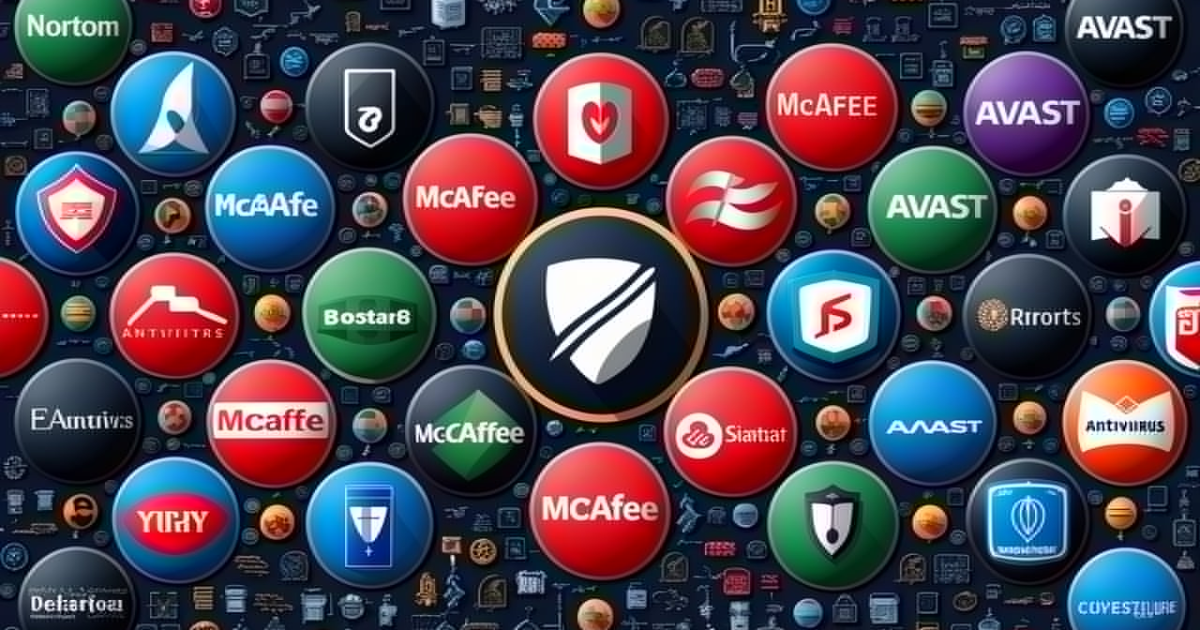In today’s digital age, every click, download, or online interaction carries a risk. Cyber threats are more sophisticated and relentless than ever, targeting both individuals and businesses. Imagine the panic of discovering your personal data has been stolen or your computer locked by ransomware. The frustration and helplessness can be overwhelming. But there’s a solution: antivirus software. In this post, we’ll explore how antivirus software plays a crucial role in safeguarding your online presence, offering peace of mind in an otherwise perilous digital landscape.
What is Antivirus Software?
Antivirus software is a type of program designed to protect your computer from harmful threats like viruses, malware, and spyware. It scans your computer for these threats and removes them to keep your system safe. Antivirus software has evolved over time, starting with basic virus detection to more advanced tools that protect against a wide range of online dangers.
Importance of Internet Security
Internet security is crucial because it helps protect your personal and financial information from being stolen or damaged. Without proper security, you risk data breaches, which can lead to financial losses and personal harm. For instance, hackers could access your bank details or private emails if your security isn’t strong.
Types of Online Threats
Online threats come in many forms. Malware includes viruses, worms, and Trojans that can damage your computer. Ransomware locks your files until you pay a ransom. Phishing scams trick you into giving away personal information by pretending to be a trustworthy source. Spyware secretly monitors your activities. These threats can cause serious problems if not managed properly.
Malware Protection
Malware includes different types of malicious software. Antivirus programs detect and remove malware by scanning your computer and identifying suspicious files or behavior.
Phishing Scams
Phishing scams trick people into revealing sensitive information by pretending to be legitimate organizations. Antivirus software helps by identifying and blocking these fake attempts.
How Antivirus Software Works
Antivirus software works by scanning files in real-time, using techniques like pattern matching and heuristics to detect threats. It relies on virus definitions to recognize and deal with new threats effectively.
Key Features of Antivirus Software
Essential features include real-time protection, which stops threats as they occur, a firewall to block unauthorized access, email scanning to catch dangerous attachments, and automatic updates to stay current with the latest threats.
Benefits of Using Antivirus Software
Using antivirus software provides several benefits, such as protecting your computer from viruses, improving system performance, and giving you peace of mind. Users often find that it helps prevent many problems and keeps their digital life secure.
Types of Antivirus Software
Antivirus software comes in different types. Free antivirus options provide basic protection but might lack advanced features. Paid antivirus offers more comprehensive security and extra features like advanced malware protection and customer support. Cloud-based antivirus runs on the internet, keeping your computer light and fast. Local antivirus is installed directly on your device, offering strong protection but might use more system resources.
Pros and Cons
- Free Antivirus: Good for basic protection, but may not have all features.
- Paid Antivirus: Offers better protection and more features, but costs money.
- Cloud-based Antivirus: Lightweight and updates automatically, but relies on internet connection.
- Local Antivirus: Strong protection with offline access, but can slow down your computer.
Popular Antivirus Software Providers
Some leading antivirus providers include Norton, McAfee, and Bitdefender. Norton is known for its strong malware protection. McAfee offers a range of security tools. Bitdefender provides excellent protection with minimal impact on system speed.
Antivirus Software vs. Built-in Security
Third-party antivirus software often provides more comprehensive protection than built-in options like Windows Defender. Built-in security tools are good for basic protection but might lack advanced features. Third-party options often offer better protection against newer threats.
How to Choose the Right Antivirus Software
When choosing antivirus software, consider factors like budget, features, compatibility, and ease of use. Decide whether you need basic or advanced protection and choose software that fits your needs.
Installing and Setting Up Antivirus Software
To install antivirus software, download it from the official website, follow the setup instructions, and configure it according to your preferences. If you encounter issues, check the software’s help section or contact customer support.
Regular Software Updates
Regular updates are crucial as they ensure your antivirus software can protect against the latest threats. Updates improve protection and performance by adding new virus definitions and security patches.
Common Myths about Antivirus Software
Some people think antivirus software is no longer needed, but that’s not true. Antivirus software remains essential for protecting against new and evolving threats.
Read More:
Your Guide to Getting the Most Out of SnapTube Free Version
Impact of Antivirus Software on System Performance
Antivirus software can sometimes slow down your computer. To minimize this impact, choose lightweight antivirus software and adjust its settings to balance protection and performance.
Case Studies of Antivirus Success
There are many examples where antivirus software successfully stopped cyber threats. These cases show the importance of having good antivirus protection to prevent damage and data loss.
Conclusion
In summary, antivirus software plays a crucial role in internet security by protecting your computer from various online threats. We’ve covered different types of antivirus software, from free to paid options, and highlighted popular providers like Norton, McAfee, and Bitdefender. We also compared third-party antivirus solutions with built-in security features and discussed the importance of regular software updates.
Remember, while antivirus software is essential, it should be part of a broader internet security strategy that includes safe browsing habits and regular updates. By choosing the right antivirus software and keeping it up-to-date, you can safeguard your computer and personal information from cyber threats effectively.
FAQ
What is antivirus software?
Antivirus software is a program designed to detect, prevent, and remove malicious software (malware) from computers and networks.
Why is internet security important?
Internet security is crucial to protect sensitive data, prevent cyber attacks, and ensure safe online activities.
How does antivirus software protect against malware?
Antivirus software uses techniques like real-time scanning, heuristics, and signature-based detection to identify and neutralize malware.
What are the key features of antivirus software?
Key features include real-time protection, firewall, email scanning, and automatic updates to safeguard against threats.
How often should antivirus software be updated?
Antivirus software should be updated regularly to ensure it can protect against the latest threats and vulnerabilities.


